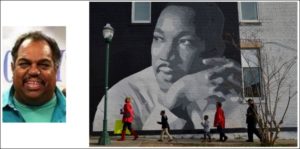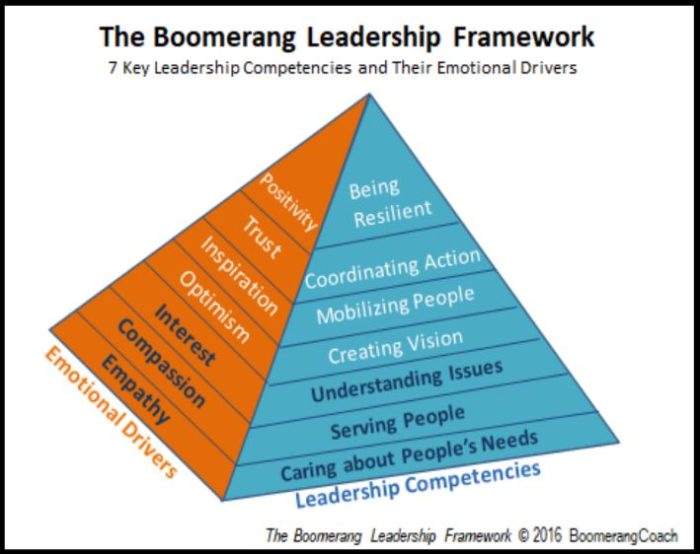MLK’s Legacy: A Black Man Inspires Klansmen to Change. A Lesson in Transformational Leadership

LEFT: Daryl Davis at Memorial Concert IHO Daniel Pearl at ACJ Nov. 05, 2017 | by U.S. Embassy — RIGHT: People gather to march in the annual parade down MLK Boulevard to honor MLK, in Chattanooga, Tennessee. REUTERS/Billy Weeks
As we reflect on MLK’s legacy after the 50th anniversary of his death, one inspiring example is Daryl Davis, a black, blues musician who has courageously followed MLK’s 2nd principle of non-violence: “Seek friendship and understanding.”
More than 30 years ago, Daryl Davis met a member of the KKK who declared to him: “Well, we all know that all black people have within them the gene that makes them violent.” Despite this offensive remark, Daryl persevered and managed to bring the conversation to an unexpected outcome. Five months later the Klansman would hand his robe to Daryl and announce that he had left the Klan. This was the first of more than 200 Klansmen who would effectively “give up their robes” because of Daryl’s relentless effort to “seek friendship and understanding.”
After learning of Daryl’s story in the award-winning documentary Accidental Courtesy: Daryl Davis, Race & America (available from Amazon), I was curious about the leadership behaviors that Daryl had used to inspire KKK members to leave the Klan, and in some cases to even become anti-racist activists.
Since converting that first Klan member, Daryl has continued to focus on an issue that he has struggled with his entire life — being hated because of the color of his skin. When confronted with racist beliefs, instead of becoming bitter and resentful, Daryl would ask, “How can you hate me when you don’t even know me?”
This question is at the heart of Daryl’s approach, which is to understand the Klansman’s needs, beliefs and emotions that drive his behavior. But in order to truly understand what drove the man’s behavior, Daryl first had to be empathetic. Daniel Goleman defines empathy as understanding another person’s perspective, feeling what someone else feels, and sensing what another person needs. Daryl, saw the man as a human being who has the need for feeling safe and he understood how the man’s false believes about black people made him feel threatened in his safety. Through empathy, Daryl understood that this is what fueled the man’s fear and ultimately his hatred of black people.
MLK once said, “People fail to get along because they fear each other; they fear each other because they don’t know each other; they don’t know each other because they have not communicated with each other.” Daryl broke that cycle through his interest in getting to know the man.
In his research article “Interest—The Curious Emotion”, Psychology Professor Paul J. Silvia makes the case for how the emotion of interest has a “central role in cultivating knowledge and expertise.” Therefore it is interest that attracts someone to new and unfamiliar things. It was Daryl’s interest that inspired him to gain a deeper understanding of the Klan’s belief system, which was essential for having informed conversations with the KKK members.
Daryl underlines the importance of understanding an issue: “The best thing you can do is study up on the subject as much as you can. I went in armed, not with weapons, but with knowledge.” By showing that he understood the organization and belief system of the Klan, including what motivates the Klan’s hatred against blacks, Daryl was able to gain respect and open the door for conversations with many of the Klansmen.
When the first Klansman made the ludicrous claim that “all blacks have a gene that makes them violent,” Daryl was prepared to rationally counter by asking, “Can you name three black serial killers?” The man could not think of any names, but Daryl easily rattled off a handful of white serial killers, and asserted that whites have a gene that makes them a serial killer. When the Klansman objected, Daryl said, “I admit, what I said was stupid, but no more stupid than what you said to me.” Then the man got quiet and changed the subject. Five months later, the Klansman had given up his robe, since he had realized that his old belief system was not true.
Daryl’s approach in transforming over 200 KKK members serves as a lesson in transformational leadership: even before taking any action, Daryl started focusing on gaining a real understanding of the complexity of the issues, including seeking an understanding of the human needs of the members of the KKK. Then examining the beliefs and emotions that drive people’s behavior in the KKK. Then, only from that deeper understanding can a leader inspire others to change their behaviors. While empathy allows Daryl to care for the Klansmen as human beings and compassion compels him to serve them through constructive conversations, it has been his burning interest in understanding why he is hated that has most inspired him to study the KKK and to get to know its members.
In summary, transformational leadership at its core means transforming the behaviors of others, as Daryl Davis has demonstrated. Empathy, compassion and interest are the foundation of the emotional drivers that are critical for leaders to transform people’s behavior. To change the behavior of others, leaders first must care for others’ needs. Second, they must be motivated to serve those needs. And third, they must truly understand those needs and the complexity of the related issues.
This correlation is illustrated in the graph below which shows:
- empathy leads to caring for people
- compassion leads to serving people’s needs
- interest leads to understanding people’s needs and issues

Boomerangcoach Leadership Framework
Daryl has been criticized for engaging with members of the KKK because of what that organization stands for. Critics also contend that his approach does not address the systemic root causes of racism. Indeed, overcoming racism will require a more scalable approach than just changing one person at a time. However, the transformational leadership competencies demonstrated by Daryl Davis may serve as a foundation for a larger scale solution.
Along with my colleagues at Blue Earth (https://www.blueearthnetwork.com/), I am coaching and teaching these competencies to leaders in a wide range of organizations. These competencies are a foundation for organizations to build an interconnected culture, so they can develop sustainable and scalable innovations.
We welcome your comments on this post, or if you have questions, you may also contact me directly at reiner@blueearthnetwork.com.
Other articles I have published about emotional competencies in leadership include: